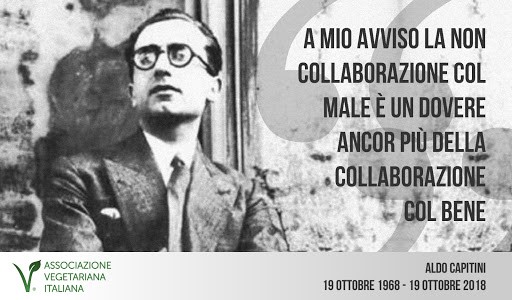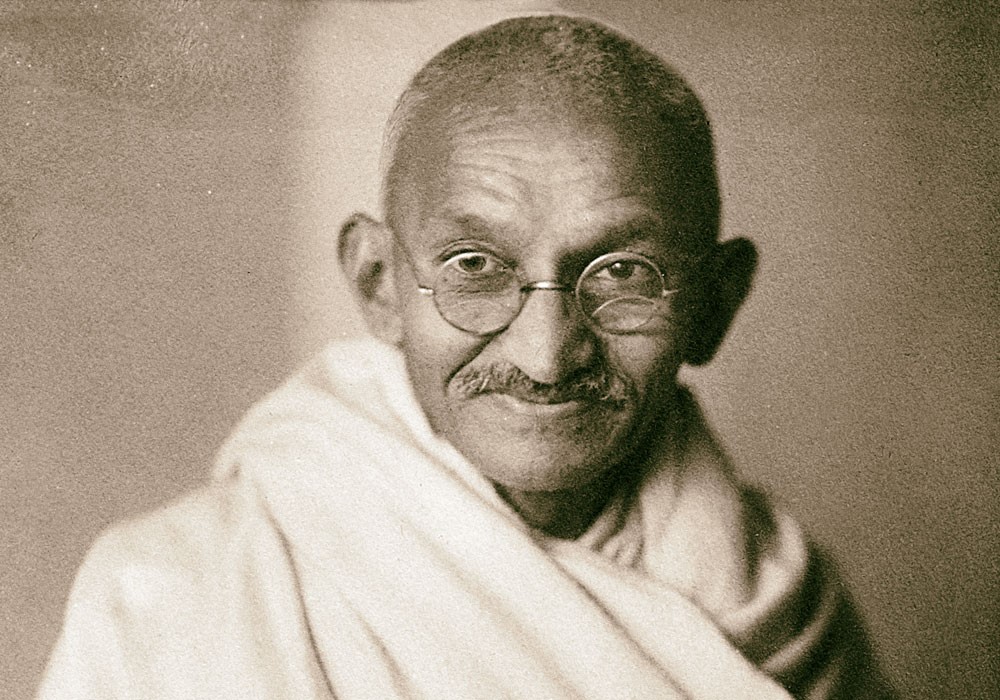
October 2nd – World Nonviolence Day
"Nonviolence is the greatest force available to mankind"
Mahatma Gandhi
The International Day of Nonviolence was promoted by the General Assembly of the United Nations in 2007 and is celebrated on October 2, the date of Mahatma Gandhi’s birth. His will be a life of continuous testimony: nonviolence is not only the denial of violence and not only a method of action, it is a way of life that distinguishes itself from pacifism which is a struggle for disarmament.
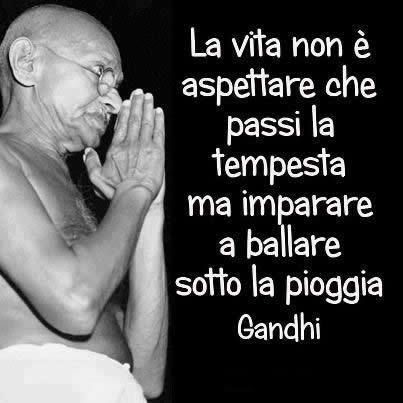
Life is not waiting for the storm to pass but learning to dance in the rain.
Gandhi
Mohandas Karamchand Gandhi was born on October 2, 1869 in Porbandar, in a family of wealthy merchants from Gudjerat, in the northwest of the then British Indian Empire. He studied law in London and then, too shy to plead the cause in India, left in May 1893 for South Africa, where a large community of Indians had settled.
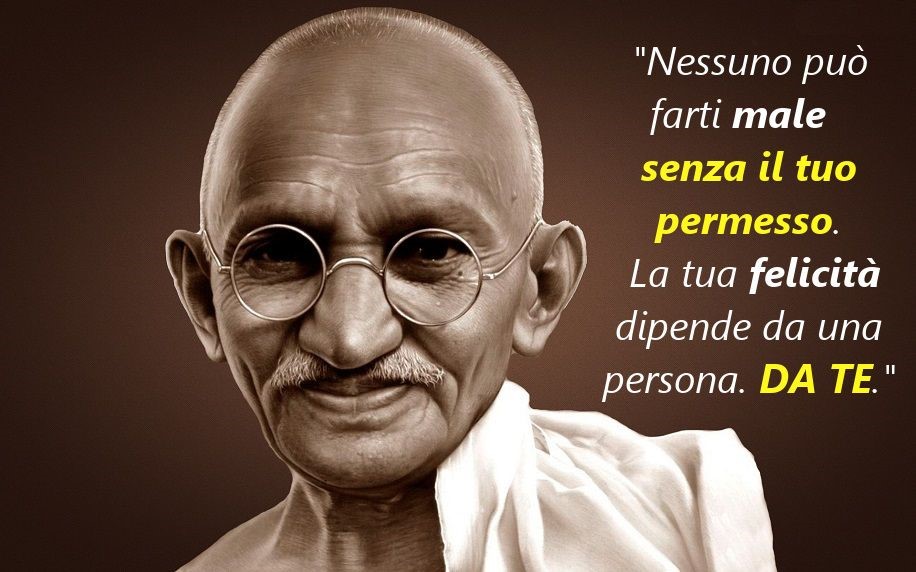
No one can hurt you without your permission. Your happiness depends on one person. ON YOU.
Struck by the racist harassment of whites, such as being thrown out of a first class railroad compartment, he stands as a defender of Indian immigrants and forges an original doctrine based on non-violence, self-control and respect for the truth (the “satyagraha”) necessary to face colonial political-economic-cultural systems, characterized by abuse and exploitation of the weak and/or local and non-local minorities.
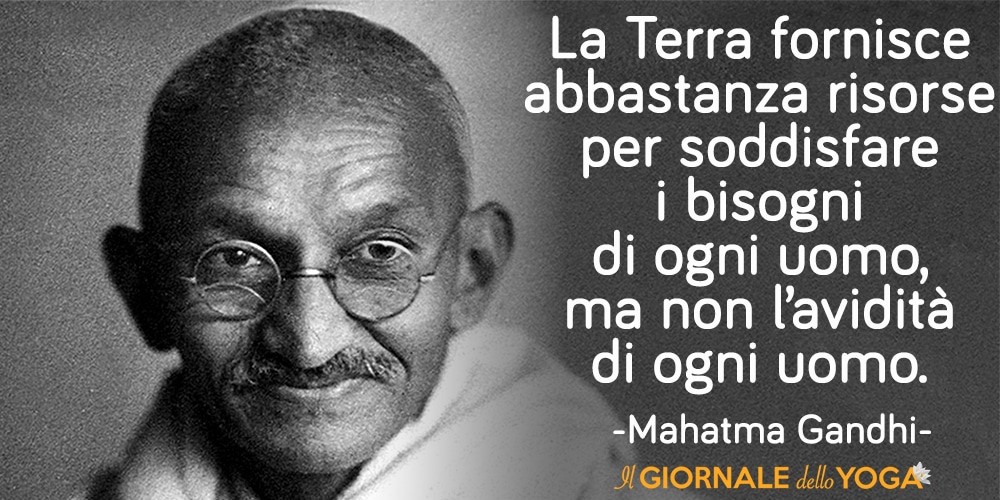
The earth provides enough resources to meet every man’s needs but not every man’s greed
– Mahatma Gandhi –
Back in India, he translated the doctrine of nonviolence into the practice of passive and collective disobedience against British rulers to combat discrimination and gain independence. But at the price of several imprisonments.
Nonviolent action is a technique by which people who reject passivity and submission, and see the struggle as essential, can win the conflict without violence. Nonviolent action is not an attempt to avoid or ignore conflict. It is a response to the problem of how to act effectively in politics, but not only that. It is about exercising power effectively.
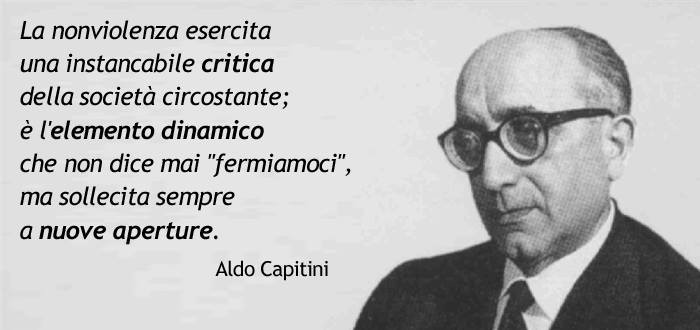
Nonviolence exerts a tireless criticism of the surrounding society;
it is the dynamic element that never says “let’s stop”,
but always solicits new adventures.
Aldo Capitini
In Italy we owe to Aldo Capitini (1889-1968) the spread of nonviolent themes and techniques and, in particular, the long struggle for the recognition of conscientious objection to military service.
For Aldo Capitini, as for Ghandi, nonviolence was above all a revolutionary choice in day today life: both believed that nonviolence is not only conceivable as a refusal to do evil, to act badly towards creatures, it is also an eminently active way of intervening, and nonlie and noncollaboration with those who work through abuse and injustice are part of it.
